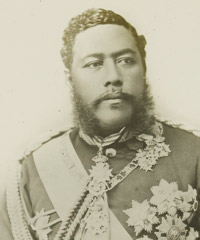Songs of Travel and Other Verses, 1895

Songs of Travel and Other Verses Contents
I. The Vagabond—Give to me the life I love; II. Youth and Love: i.—Once only by the garden gate; III. Youth and Love: ii.—To the heart of youth the world is a highwayside; IV. In dreams, unhappy, I behold you stand; V. She rested by the Broken Brook; VI. The infinite shining heavens; VII. Plain as the glistering planets shine;
VIII. To you, let snows and roses; IX. Let Beauty awake in the morn from beautiful dreams; X. I know not how it is with you; XI. I will make you brooches and toys for your delight; XII. We have loved of Yore—Berried brake and reedy island; XIII. Mater Triumphans—Son of my woman’s body, you go, to the drum and fife; XIV. Bright is the ring of words; XV. In the highlands, in the country places; XVI. Home no more home to me, wither must I wander?; XVII. Winter—In rigorous hours, when down the iron lane; XVIII. The stormy evening closes now in vain; XIX. To Dr. Hake—In the belovèd hour that ushers day; XX. To —I knew thee strong and quiet like the hills;
XXI. The morning drum-call on my eager ear; XXII. I have trod the upward and downward slope; XXIII. He hears with gladdened heart the thunder; XXIV. Farewell, fair day and fading light!; XXV. If this were Faith—God, if this were enough; XXVI. My Wife—Trusty, dusky, vivid, true; XXVII. To the Muse—Resign the rhapsody, the dream; XXVIII. To an Island Princess—Since long ago, a child at home; XXIX. To Kalakaua—The Sliver Ship, my King—that was her name; XXX. To Princess Kaiulani—Forth form her land to mine she goes; XXXI. To Mother Maryanne—To see the infinite pity of this place; XXXII. In Memoriam E. H.—I knew a silver head was bright beyond compare; XXXIII. To my Wife—Long must elapse ere you behold again; XXXIV. To my Old Familiars—Do you remember—can we e’er forget?; XXXV. The tropics vanish, and meseems that I; XXXVI. To S. C.—I heard the pulse of the besieging sea; XXXVII. The House of Tembinoka—Let us, who part like brothers, part like bards; XXXVIII. The Woodman—In all the grove, not stream nor bird; XXXIX. Tropic Rain—As the single pang of the blow, when the metal is mingled well; XL. An End of Travel—Let now your soul in this substantial world; XLI. We uncommiserate pass into the night; XLII. Sing me a song of a lad that is gone; XLIII. To S. R. Crockett—Blows the wind to-day, and the sun and rain are flying; XLIV. Evensong—The embers of the day are red.
Summary
Songs of Travel and Other Verses was originally planned by Stevenson as an extension of Underwoods. In December 1894, shortly after the author’s death, Sidney Colvin collected the lyric and occasional poems in Volume XIV of the Edinburgh Edition, incorporating them, in accordance with his friend’s wishes, as Book III of Underwoods. Colvin maintained that Stevenson had left the naming of the work and the order of the poems to his literary executor’s discretion. Rejecting such variants as Songs and Notes of Travel and Vailima, which the author had once considered, Colvin settled on the title Songs of Travel and Other Verses.
An eighty-five-page, dark-blue, clothbound volume of Songs of Travel was published in its own right by Chatto & Windus in September 1896 (the first edition contained a list, dated July 1895, of books available from the publisher). In a prefatory note, Colvin, noting Stevenson’s desire to treat the uncollected poems as Book III of Underwoods, declared that, “for the benefit of those who possess ‘Underwoods’ in its original form, it has been thought desirable to publish them separately in the present volume.”
The poems, which were composed from the time of Stevenson’s sojourn at Saranac Lake to his final residence at Vailima, range from lyrical love poems to meditations on time, place, and mortality. A number of the poems consist of retrospective views of Stevenson’s native Scotland, while others have a distinctly Samoan setting. The term “Travel” is used in a broader sense of not merely physical movement but also an interior pilgrimage, as in “The Vagabond” and “To the tune of Wandering Willie.” British composer Ralph Vaughan Williams set nine of the poems to music in his 1904 song cycle, Songs of Travel.
By William B. Jones Jr.
Image courtesy of Capital Collections
